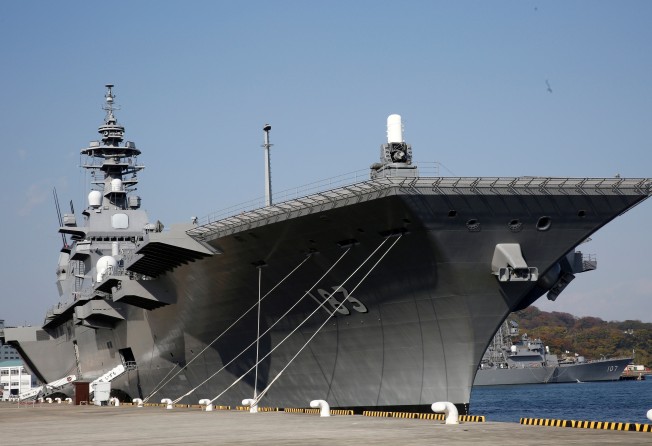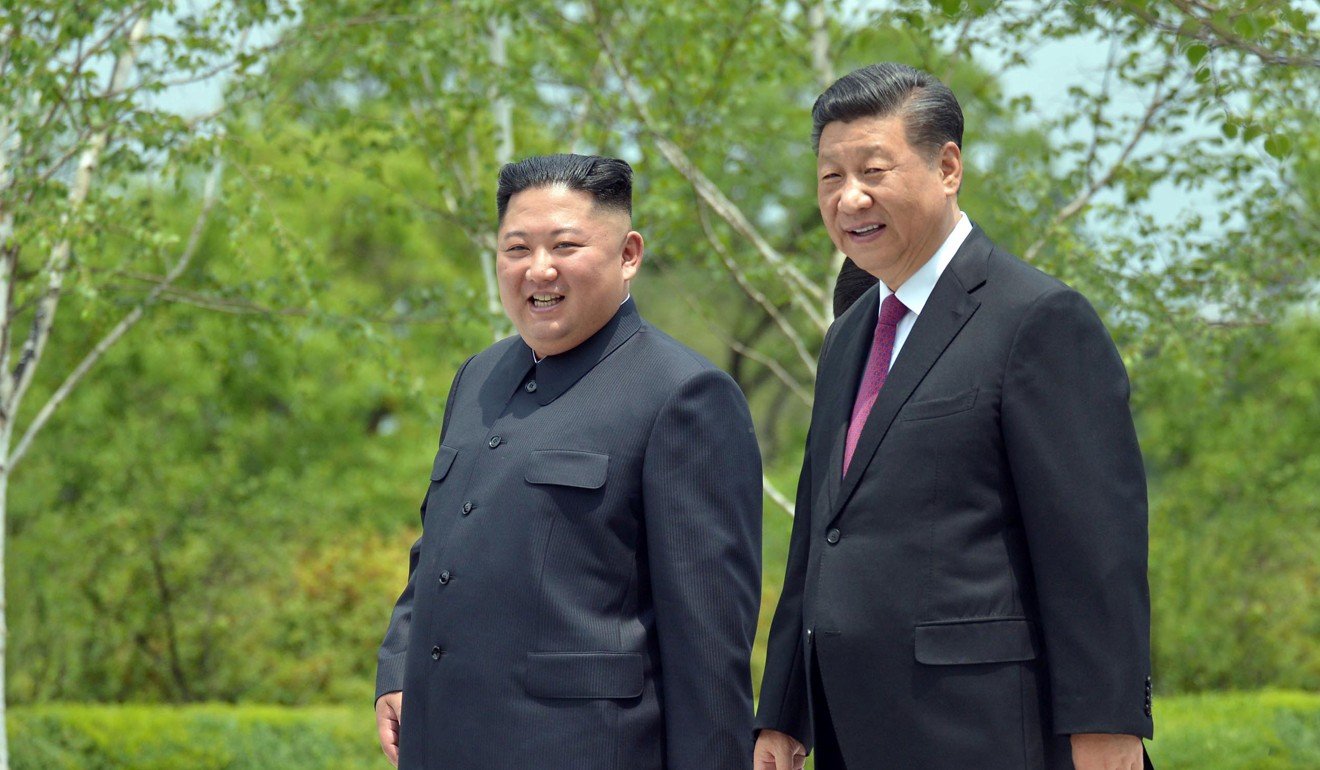North Korea takes offence to Japanese naval exercises – to curry favour with Xi Jinping and China
- In a bid to show its support before a defence treaty with Beijing expires in 2021, Pyongyang has called the drills a reminder of Japan’s imperial past
- The strong words from state-run North Korean media come as bilateral ties warm following Xi’s visit to the North in early June

Vessels from the Japan Coast Guard and the country’s Maritime Self-Defence Force conducted their first joint exercises in the South China Sea on Wednesday, in what analysts suggest was a message to Beijing – although the most affronted party would appear to be Pyongyang.
“Japan’s move is reminiscent of the inglorious past of Imperial Japan, which expanded a war to the continent of China following the invasion of Korea,” the North Korean state-run Minju Joson newspaper declared in a strongly worded editorial on the same day as the manoeuvres.
“It is an ulterior intention of the Japanese reactionaries to realise the old dream of the [World War II-era Japanese imperialist concept] ‘Greater East Asia Co-Prosperity Sphere’ … at any cost with the help of the United States.”
The newspaper repeated the North Korean regime’s frequent claim that Japan is preparing to once again invade the Asian mainland, suggesting that “Japanese imperialists [are] obsessed with the aggression of the continent” and plan to “run amok”.
Pyongyang’s comments were in response to the first overseas joint drill involving the Coast Guard and the Maritime Self-Defence Force in more than five years.
The drills were led by the Izumo, the Japanese helicopter carrier that is due to be retrofitted to enable it to operate the vertical take-off and landing variant of the F-35 fighter. Two Japanese destroyers and the Coast Guard patrol boat Tsugaru also took part in the drills off Brunei.
The exercises coincide with Chinese President Xi Jinping’s visit to Japan to take part in the G20 summit in Osaka from June 28-29. Significantly, analysts point out, they also come soon after Xi in early June became the first Chinese leader to visit Pyongyang since 2005.
“After Xi’s visit to Pyongyang it is pretty obvious that North Korea and China are showing that they have lots in common once again,” said Leonid Petrov, head of postgraduate studies at the International College of Management in Sydney.
“We are moving back to the two nations being ‘as close as lips and teeth’,” he said, quoting former Chinese paramount leader Mao Zedong’s description of the bilateral relationship.
“It is possible that they reached a gentleman’s agreement in Pyongyang that North Korea will support Chinese policy on developing its territory and, in return, China will support North Korea in whatever other issues that it faces.
“And that’s not really surprising because [US President Donald] Trump has done everything he possibly can to alienate both those countries and has instead brought China, Russia and both North and South Korea closer together.”

North Korean leader Kim Jong-un will also have one eye on the Sino-North Korean Mutual Aid and Cooperation Friendship Treaty, under which Beijing is committed to immediately render military and other assistance to Pyongyang in the event that its ally is attacked. Originally signed in 1961, the treaty is due to expire in 2021 and North Korea desperately wants it to be renewed.
“That means North Korea needs to demonstrate its loyalty and vigorous support for China,” Petrov said, adding that “as neither country much likes Japan, [it is] an easy target”.
Tomohito Shinoda, professor of international relations at The International University of Japan, agreed that North Korea’s support for China came as little surprise.
“I think that Pyongyang may have interpreted these exercises, so close to the G20 summit, as a slap to Xi’s face and wanted to demonstrate to the Chinese leader that they are a country he can rely on,” he said.
If the Chinese leader reaches the same conclusion, Shinoda said, then Beijing might be less committed to enforcing international sanctions on the North Korean regime – although he said Japan has learned to view the proclamations of the North’s state-run media with a jaundiced eye.
Claims that Japan is rearming to carry out a new invasion of the Asian mainland are a staple of their coverage, Shinoda said: “We have learned to ignore it.”